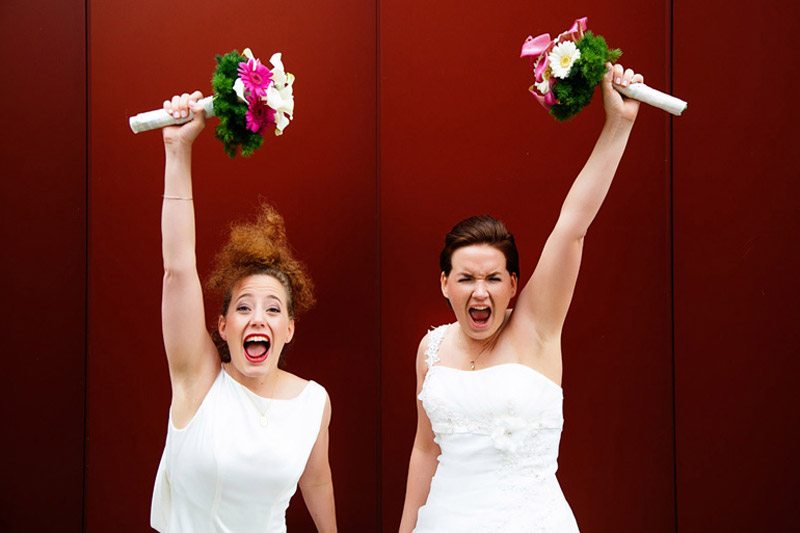On 1 October 2017 same-sex marriage became legal in Germany as well. The fight for LGBTQ+ rights are nowhere easy, but the German example gives us, Hungarians, hope and inspiration, even to our personal coming outs. We’ve collected the good-to-know parts of the law.
To come out, to be accepted and to believe that we are worth no less than others, is a hard task. We are afraid and we even hesitate because sometimes we feel we are the one who confront the mass. So you know. Coming out sucks.
But if there’s a small trail of light that brings brightness into our clouded and desperate minds and human nature, we speak out more easily. The German example is just like a trail of light. We are listing the most important questions and answers about their changes.
1. What changes exactly?
The German Civil Code. Changes came into force on 1st of October, which from now on says: "Marriage is between two people from the different or same sex, for life." So not only men and women are allowed to marry each other.

2. What was the legal situation for gays and lesbians until October 1st?
Since 2001, homosexuals in Germany could only register civil partnership officially. Differences from marriage, for example in tenancy, inheritance and tax law, were indeed eliminated over the years, but the biggest one has stayed in force: registered partners were not allowed to adopt children together.
3. Is adoption by gay people allowed from October?
Yes. A change in the adoption law is not necessary for this, because there, the guidelines are generally attributed to married couples. Once a gay or lesbian couple is married, the spouses can adopt a child together as heterosexual couples do - if they meet the necessary conditions.
4. Will life partnership be an option in the future?
No. Life partnerships can no longer be established as this law got into force. Civil partnerships registered before October 1st are still valid if the partners don’t apply their partnerships for conversion into marriage.
5. Will life partnerships automatically become marriages from October 1st?
No. The conversion is only on request. Both partners must declare at the registry office that from now on they want to be married.

6. How many couples are affected by this change?
According to the latest microcensus, around 94,000 homosexual couples lived together in Germany in 2015, 43,000 of them in registered life partnerships. According to a survey in the registry office, there are more requests for transformations of existing registered partnerships than for new marriages.
7. Are there any technical problems with the conversion?
In the marriage certificate same-sex marriage can not be properly recorded until 1st November 2018 . Until then, there are only the previous entries "husband" and "wife". This means that for gay and lesbian couples, one of them will be sorted in the wrong place for the time being. There was a failure in the legislative process, but this is only a formal problem, it doesn’t mean same-sex partners cannot marry.
8. Why did the law come so suddenly after decades of discussion?
At the end of June, Angela Merkel surprisingly changed her party’s (CDU) opinion about the question - until then, they were clearly against it - and suddenly spoke of a conscientious decision. The other parties in the Bundestag then put pressure to reach a quick decision about the issue. Shortly thereafter, the Parliament voted by open vote by a large majority for involving same-sex partners into the institution of marriage.
9. Can the change still fail?
Bavaria is considering a lawsuit in the Federal Constitutional Court. The CSU led state government has doubts about the constitutionality of the law. On their behalf, experts are now to clarify the legal situation - and the potential opportunities for a lawsuit in Karlsruhe. Whether the law ends up in court is still unclear. And even if it does: gays and lesbians can in any case marry from now on in Germany.
Translated by Zsófi Bártfai

